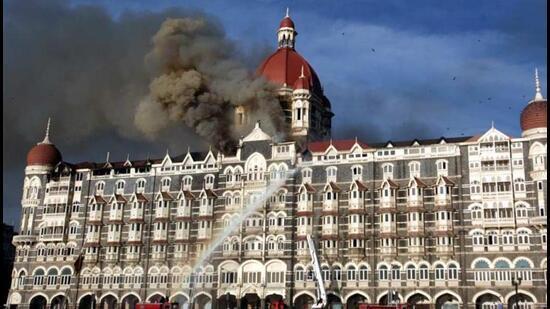
Man Cleared in 26/11 Mumbai Terror Case Seeks Permit to Drive Auto
It’s been over a decade since the 26/11 Mumbai terror attack left the city and its people in a state of shock and grief. The attack, carried out by 10 Pakistani Lashkar-e-Taiba operatives, resulted in the loss of 166 lives and left hundreds injured. The aftermath of the attack saw widespread outrage and condemnation, and the Indian government launched a massive investigation to bring the perpetrators to justice.
One of the individuals arrested in connection with the attack was Fahim Ansari, a 51-year-old man who was charged with providing local support to the terrorists. Ansari was arrested in 2009 and spent over a year in custody before being acquitted in 2010 due to lack of evidence.
Despite being cleared of wrongdoing, Ansari’s life has not been without challenges. He has been struggling to find a way to make a living and has been seeking a permit to work as a commercial auto-rickshaw driver. Recently, Ansari filed a petition in the Bombay High Court seeking a permit to drive an auto-rickshaw, which has sparked a debate about the fairness of the system.
According to the petition, Ansari has been unable to find a job due to the stigma attached to his name and the fact that he was once accused of being involved in the 26/11 attack. The petition states that Ansari has been struggling to make ends meet and has been forced to rely on the charity of others to survive.
Ansari’s plea for a permit to drive an auto-rickshaw has sparked a debate about the fairness of the system. Many have argued that despite being cleared of wrongdoing, Ansari’s past still haunts him and that he should be given a chance to rebuild his life. Others have raised concerns about the safety implications of giving a permit to someone who was once accused of being involved in a terrorist attack.
The Bombay High Court has taken notice of Ansari’s petition and has sought a response from the state government. The court has asked the government to explain why Ansari’s permit application has been pending for so long and has also sought details about the vetting process for auto-rickshaw drivers.
Ansari’s case highlights the challenges faced by individuals who have been falsely accused or wrongly implicated in crimes. Despite being cleared of wrongdoing, many people continue to struggle to rebuild their lives and find employment. Ansari’s plea for a permit to drive an auto-rickshaw is a reminder of the importance of giving people a second chance and the need to have a fair and just system in place.
The 26/11 Mumbai terror attack was a traumatic event that left a deep scar on the city and its people. The attack was a stark reminder of the threat posed by terrorism and the need for the government to take robust measures to prevent such attacks in the future.
In the aftermath of the attack, the Indian government launched a series of reforms aimed at strengthening the country’s counter-terrorism apparatus. The government also increased cooperation with international agencies to share intelligence and prevent cross-border terrorism.
The 26/11 attack also led to a significant increase in the security measures in place in Mumbai. The city’s police force was strengthened, and new laws were enacted to prevent and punish terrorism.
However, despite these efforts, the attack also highlighted the need for greater coordination and cooperation between different agencies and authorities. The attack was carried out by a group of 10 terrorists who were able to evade detection and carry out their plans with relative ease.
The 26/11 attack also led to a significant increase in the use of technology to prevent and investigate terrorism. The government launched a series of initiatives aimed at using technology to monitor and track terrorist activities and to share intelligence with international agencies.
In recent years, there have been several high-profile cases of terrorism in India, including the Pulwama attack in 2019 and the Uri attack in 2016. These attacks have highlighted the continued threat posed by terrorism and the need for the government to remain vigilant and proactive in its efforts to prevent and punish terrorism.
Ansari’s case is a reminder of the challenges faced by individuals who have been falsely accused or wrongly implicated in crimes. Despite being cleared of wrongdoing, many people continue to struggle to rebuild their lives and find employment. Ansari’s plea for a permit to drive an auto-rickshaw is a reminder of the importance of giving people a second chance and the need to have a fair and just system in place.
The Bombay High Court’s decision on Ansari’s petition will be closely watched, and it is hoped that the court will take a sympathetic view of his plea. Ansari’s case is a reminder of the importance of giving people a second chance and the need to have a fair and just system in place.






